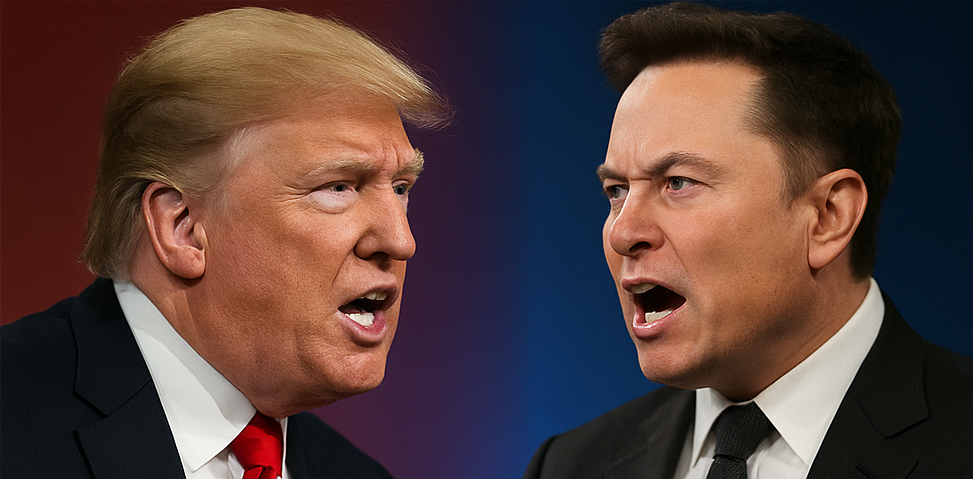
A public feud between former President Donald Trump and tech magnate Elon Musk is raising alarms in the scientific and technological sectors, as it intersects with key federal decisions on science funding, space exploration, and clean energy policy.
The conflict centers on a proposed federal spending bill that includes rollbacks on electric vehicle subsidies and adjustments to NASA and AI research funding. Musk has criticized the bill for its potential impact on innovation and the transition to sustainable energy. Trump has responded with personal attacks and accusations that Musk has overly benefitted from government contracts and subsidies.
Space Exploration at Risk
SpaceX, Elon Musk’s aerospace company, has several ongoing contracts with NASA, including major roles in the Artemis lunar program and national security satellite launches. If political shifts lead to review or redirection of these contracts, mission delays and program instability could follow.
This tension has led analysts to speculate on whether future federal aerospace policy could be influenced by political retaliation. The uncertainty could undermine long-term planning and erode confidence in public-private partnerships essential to space research.
Clean Energy and EV Policy in the Crosshairs
The same bill includes provisions to reduce electric vehicle tax credits and alter renewable energy incentives. These changes are significant for Tesla and other clean energy companies. As Musk opposes these cuts, the feud with Trump may complicate bipartisan cooperation on green energy.
While Musk has often expressed libertarian views, his businesses depend heavily on predictable and supportive government policies. The politicization of clean energy support may slow the U.S. transition to a lower-carbon economy.
Broader Implications for AI and Frontier Technologies
The spending bill also includes changes to federal AI research investment. Although less publicized, such shifts could affect U.S. competitiveness in artificial intelligence. Musk, who has founded and backed multiple AI initiatives, has publicly expressed concern over slowing public investment in advanced technologies.
If partisan disputes spill over into science funding and research infrastructure, America’s leadership in AI, quantum computing, and other emerging fields could be compromised.
Scientific Insight: Innovation Vulnerable to Political Conflict
This feud reveals a broader issue: the increasing vulnerability of scientific innovation to political disputes. U.S. science and technology advancement has historically relied on stable, long-term partnerships between the federal government and the private sector. As high-profile conflicts politicize these relationships, the risk of funding disruptions and regulatory unpredictability grows.
Summary of Potential Impact
| Sector | Risk Level | Potential Consequences |
|---|---|---|
| Space Exploration | High | Mission delays, contract reviews, reduced private trust |
| Clean Energy & EVs | High | Loss of tax credits, weakened investment confidence |
| AI & Future Tech | Medium | Uncertainty in R&D investment, slower innovation pace |
| Science Policy | Critical | Long-term instability in federal-private partnerships |
Conclusion
As the 2024 election season progresses, observers across science and industry will be watching closely. The Trump-Musk feud is more than a media spat—it is a signal of deeper volatility in how science policy may be shaped in the years ahead. Fact-based, stable policy decisions will be crucial to ensuring that the United States remains at the forefront of global scientific and technological leadership.
This article is part of our ongoing series, “Science Insight: Power, Policy, and Progress.”